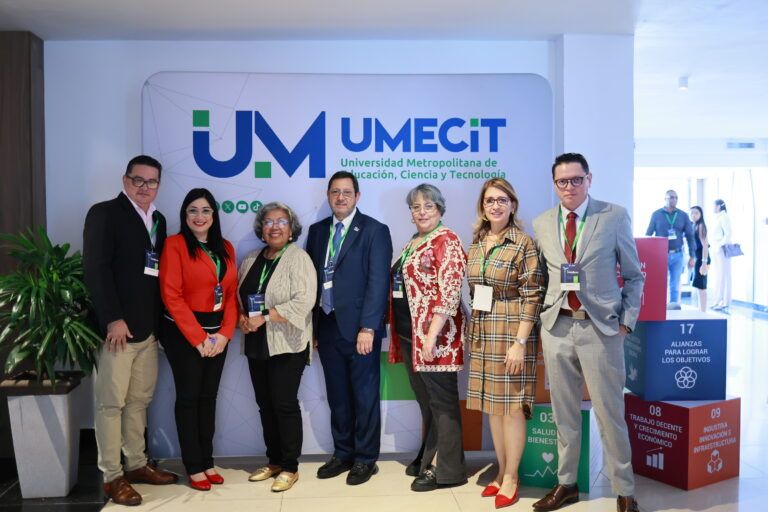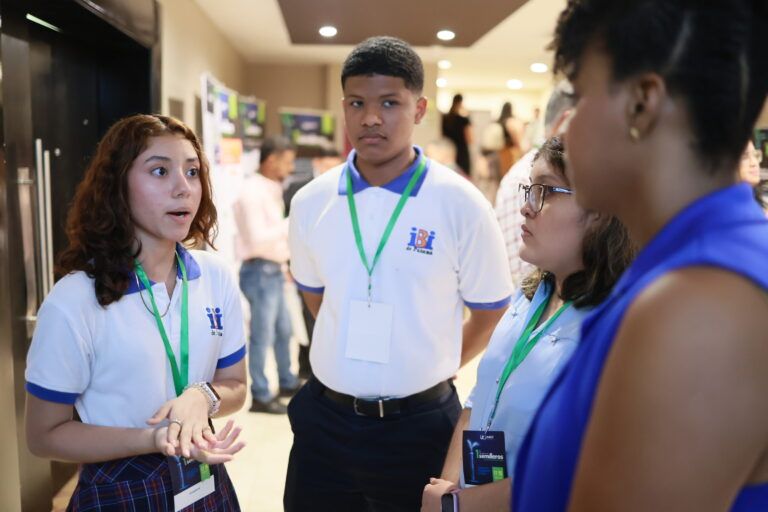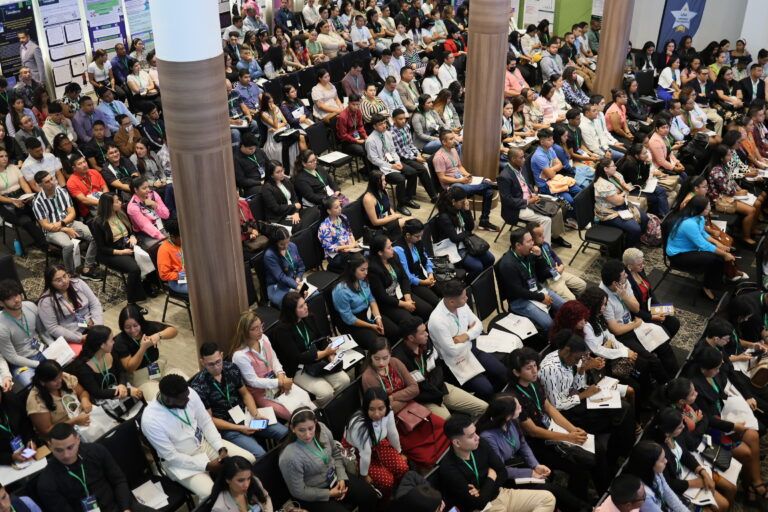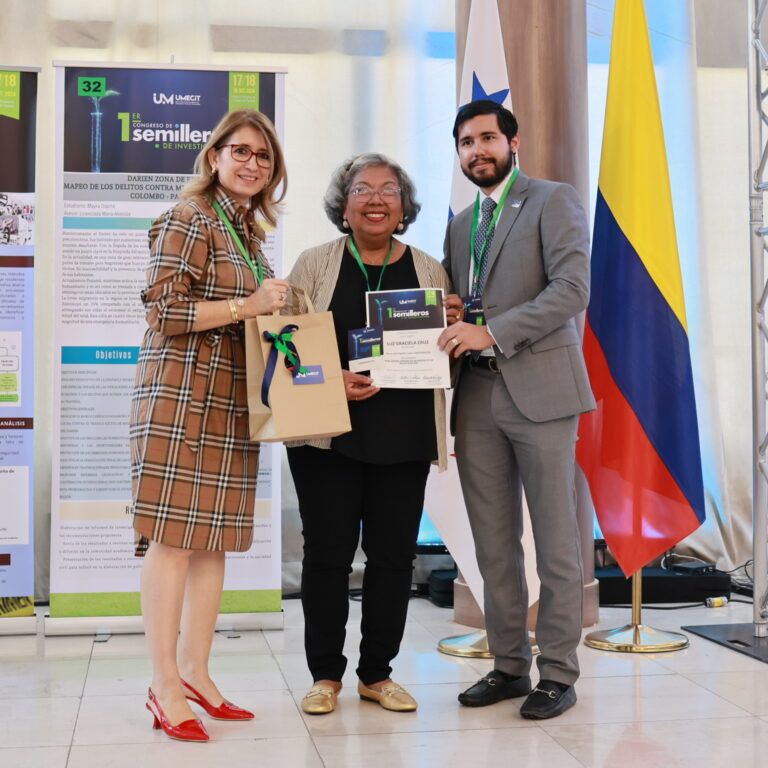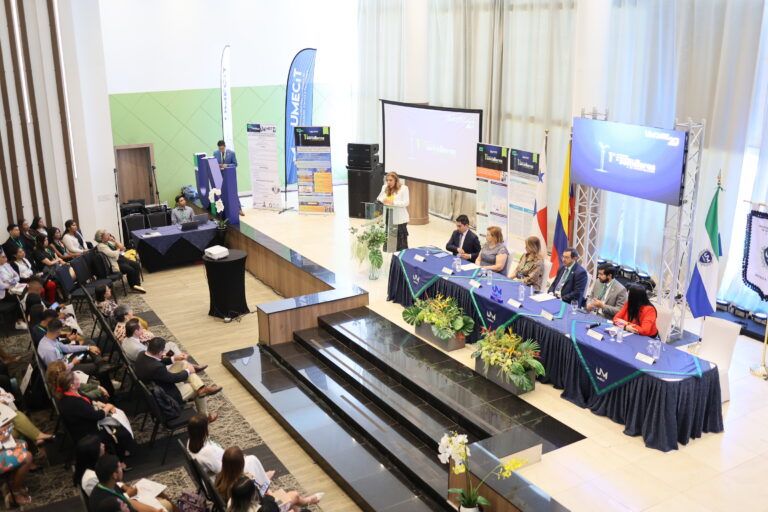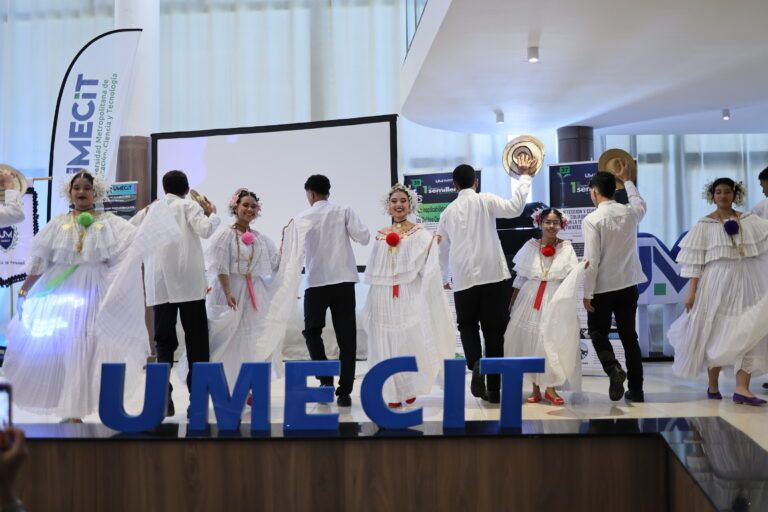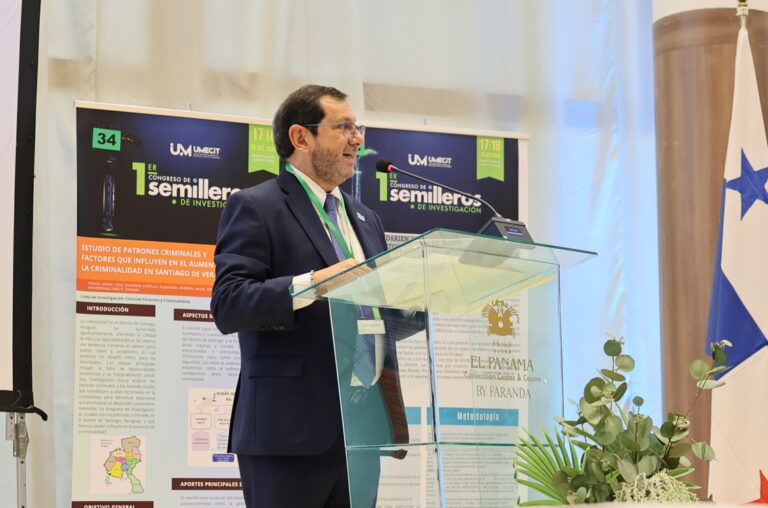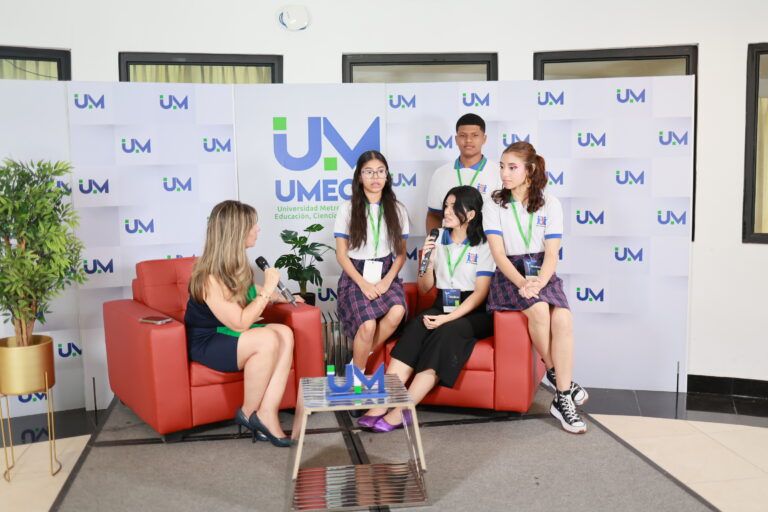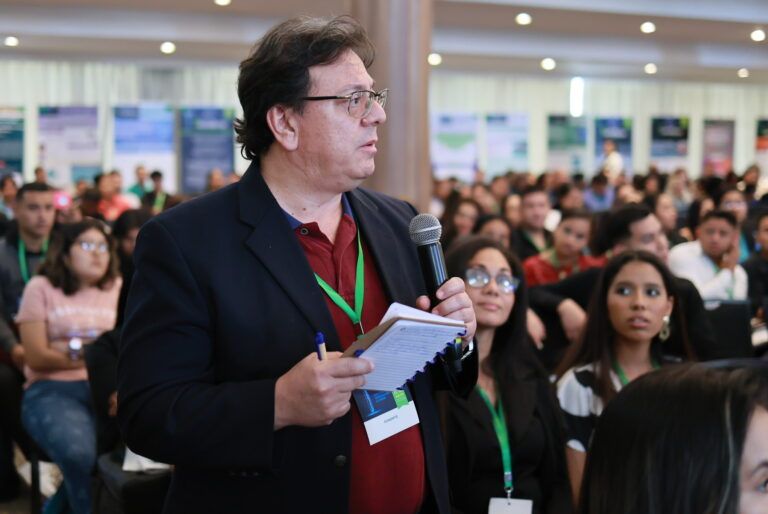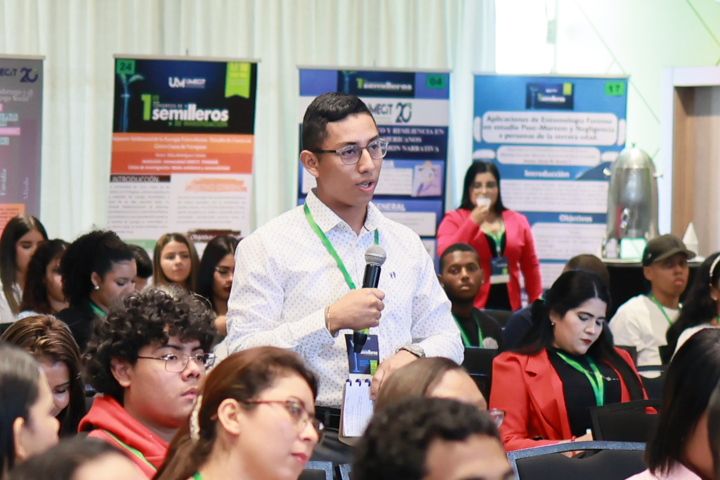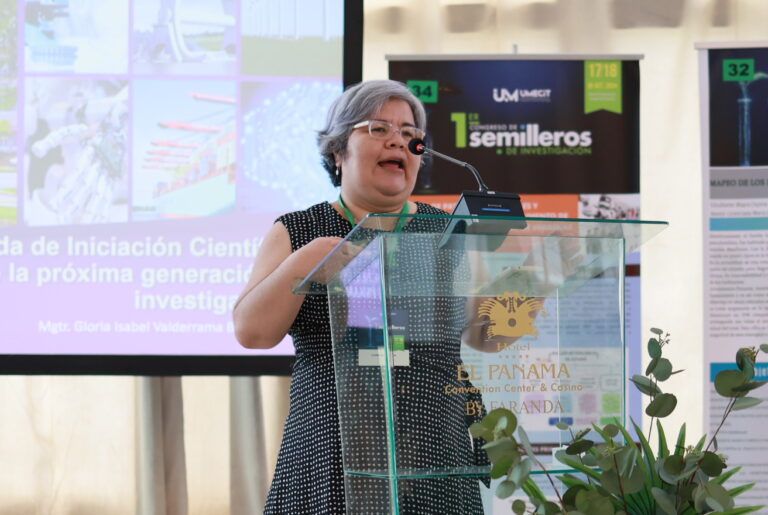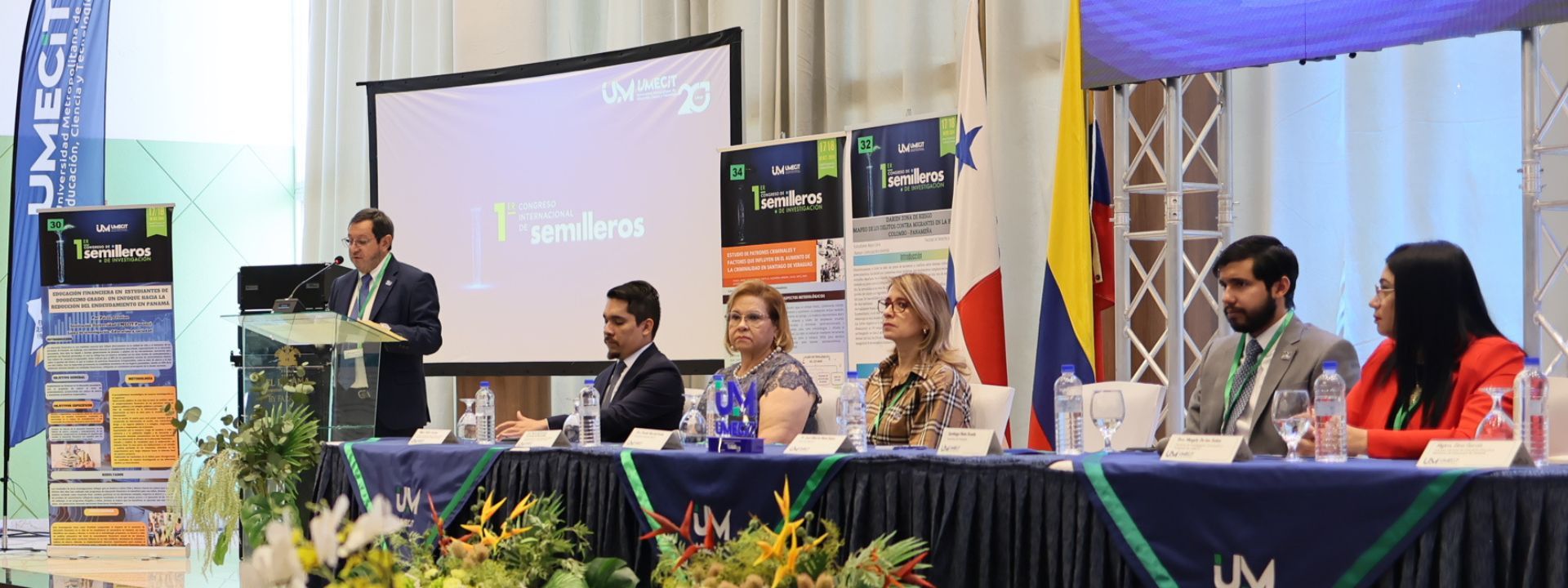UMECIT successfully holds the First International Congress of Research Seedbeds: a meeting that promotes science and knowledge
On October 17 and 18, 2024, UMECIT successfully held the First International Congress of Research Seedbeds, an event that brought together more than 500 young people from different regions of the country. For two days, students, teachers and researchers had the opportunity to participate in keynote lectures, workshops and roundtables in key disciplines such as health, technology, construction, environment, humanities, educational sciences, administrative sciences, law and forensic sciences.
The opening of the congress was chaired by the rector of UMECIT, Dr. José Alberto Nieto Rojas, who highlighted the importance of this event for strengthening the culture of research at the university. In his speech, Dr. Nieto Rojas underlined UMECIT's commitment to formative research, a fundamental pillar of the institution's Neocyberhumanist Educational Model. “It is an honor and a great pleasure to welcome you to this first international congress of research centers, whose motto is 'Seeds of today, transformers of tomorrow'. This event is a significant achievement, the result of a collective effort and a clear institutional decision to continue consolidating research as an integral part of our University,” he said.
The rector also recalled UMECIT’s track record in promoting critical thinking, innovation and creativity through research, and how this approach aligns with the objectives of the national science and technology plan of SENACYT, the National Secretariat of Science, Technology and Innovation of Panama. “We have managed to integrate research into our curricular model for more than 20 years. This allows us to prepare our students for the challenges of today’s world, ensuring that they become leaders and agents of change in their respective areas of knowledge,” added Dr. Nieto Rojas.
One of the highlights of the event was the presentation of 45 research projects developed by students from the research groups, accompanied by their mentor teachers. Currently, UMECIT has 42 research groups distributed among the various faculties and campuses, with the active participation of 515 students and 51 mentor teachers. These projects address social problems from an innovative and humanistic perspective, demonstrating the social impact of research within the university.
During his speech, the rector highlighted the importance of UMECIT's new FabLab manufacturing laboratory, sponsored by SENACYT, as an ideal space for students to develop creative and technical skills applied to solving practical problems, especially in industry. "The FabLab is an exceptional environment to foster academic and applied research, combining access to advanced technological tools and the methodology of learning by doing," said Nieto Rojas.
The participation of young scientists from the International Bilingual Institute (IBI) of Panama was also a relevant aspect of the congress. These students, aware of the importance of research from an early age, actively participated in the event, showing their projects and contributing to the creation of a research culture that goes beyond university classrooms. The rector especially thanked Master Patricia Acevedo, director of the IBI, and Dr. Gina Garcés, who leads the national research network of the Ministry of Education, for their work in promoting research in children and young schoolchildren nationwide.
In addition to the student projects, the conference was attended by prominent national and international speakers and workshop facilitators, who shared their experiences and knowledge with the attendees.
Master Ediner Fuentes, deputy director of Scientific Research and Technological Development at SENACYT, highlighted the commitment of the secretariat to promoting research in Panama. “UMECIT is part of the open literature repository portal, an invaluable resource for the country's scientific production,” said Fuentes, who also emphasized the need to increase investment in research in Panama in order to compete at a regional level.
Dr. María del Carmen Terrientes de Benavides, Executive Secretary of CONEAUPA and President of RIACES, also spoke, highlighting the importance of ethics in research and collaborative and interdisciplinary work. “Research is not done alone. We need to foster collaboration between teachers and students, and promote the exchange of knowledge between different disciplines,” she said.
At the end of the event, Dr. Nieto Rojas expressed his gratitude to all the participants and reminded the young researchers that the path of science and research is key to transforming the world. “Dear seed students, keep moving forward on your path of curiosity and science. Research is the engine that will ignite new ideas and solutions for the future. We are planting the seeds of knowledge, and all of us here have an essential role in ensuring that those seeds grow strong and healthy,” he concluded.
The First International Congress of UMECIT Research Seedbeds marks a historic moment in the strengthening of the research culture in Panama, uniting students, teachers and experts in a space of exchange and collaboration, with the aim of continuing to foster the investigative spirit in future generations.
